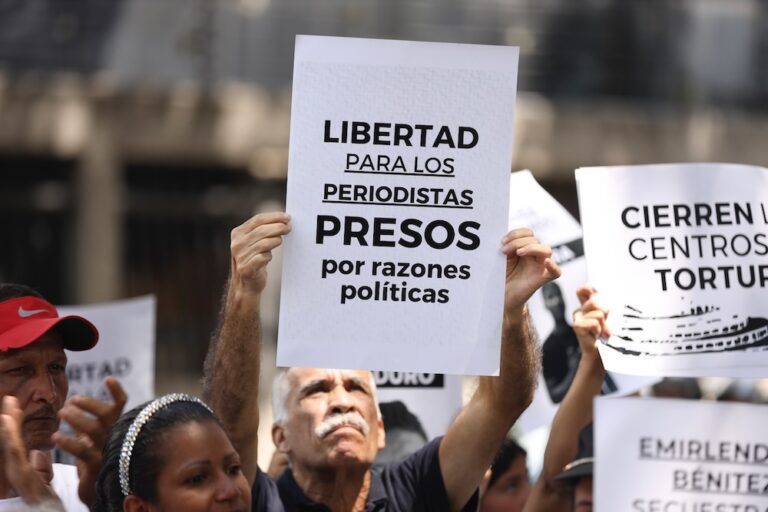CIHRS calls vote at UN Human Rights Council a "major victory for freedom of expression advocates."
(CIHRS/IFEX) – 25 March, 2010, Geneva – Today member states of the Human Rights Council (HRC) came close to rejecting a resolution on “Defamation of Religions” that has been proposed for the last decade by the Organization of the Islamic Conference (OIC) including the Arab League, and which has always passed with an overwhelming majority at both the UN HRC and General Assembly (GA).
“This constitutes a major victory for freedom of expression advocates. Even though a majority of states still voted in favour, this is the largest decline in political support for the Resolution that has ever occurred,” said Moataz El Fegiery, Executive Director of the Cairo Institute for Human Rights Studies (CIHRS). “It is also a symbolic victory for the many people who have been victims of repression based on blasphemy laws throughout the Arab region.”
UN experts and NGOs have repeatedly pointed out that the concept of “Defamation of Religions,” or the banning of forms of expression considered defamatory of a certain religion, greatly weakens international rights standards, and is often used to discriminate against religious minorities and repress freedom of expression throughout the world.
Recently some states have attempted to use the defamation resolutions of the HRC and GA as a justification to insert this concept into a binding UN treaty, thereby turning it into international law. This attempt has confirmed what human rights activists have warned of since the defamation resolution was first adopted by the UN, and may have played a part in turning some states against the resolution this time.
The HRC vote today resulted in 3 states withdrawing their support and an increase of 6 states that voted against the defamation resolution, including Argentina and Zambia who voted no for the first time. The final tally of the vote was 20 in favour, 17 against, and 8 abstentions.
“Today the Human Rights Council moved a little closer to confirming the universality and inviolability of freedom of expression. We have a long hard road ahead if we want to protect these gains and move forward on this issue,” said Jeremie Smith, Director of the Geneva Office of CIHRS, “It’s important to redouble our efforts and for NGOs around the world to demand that their governments reject a concept that is increasingly used to discriminate against different religious followers and repress freedom of expression.”


